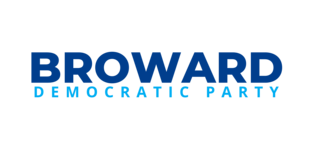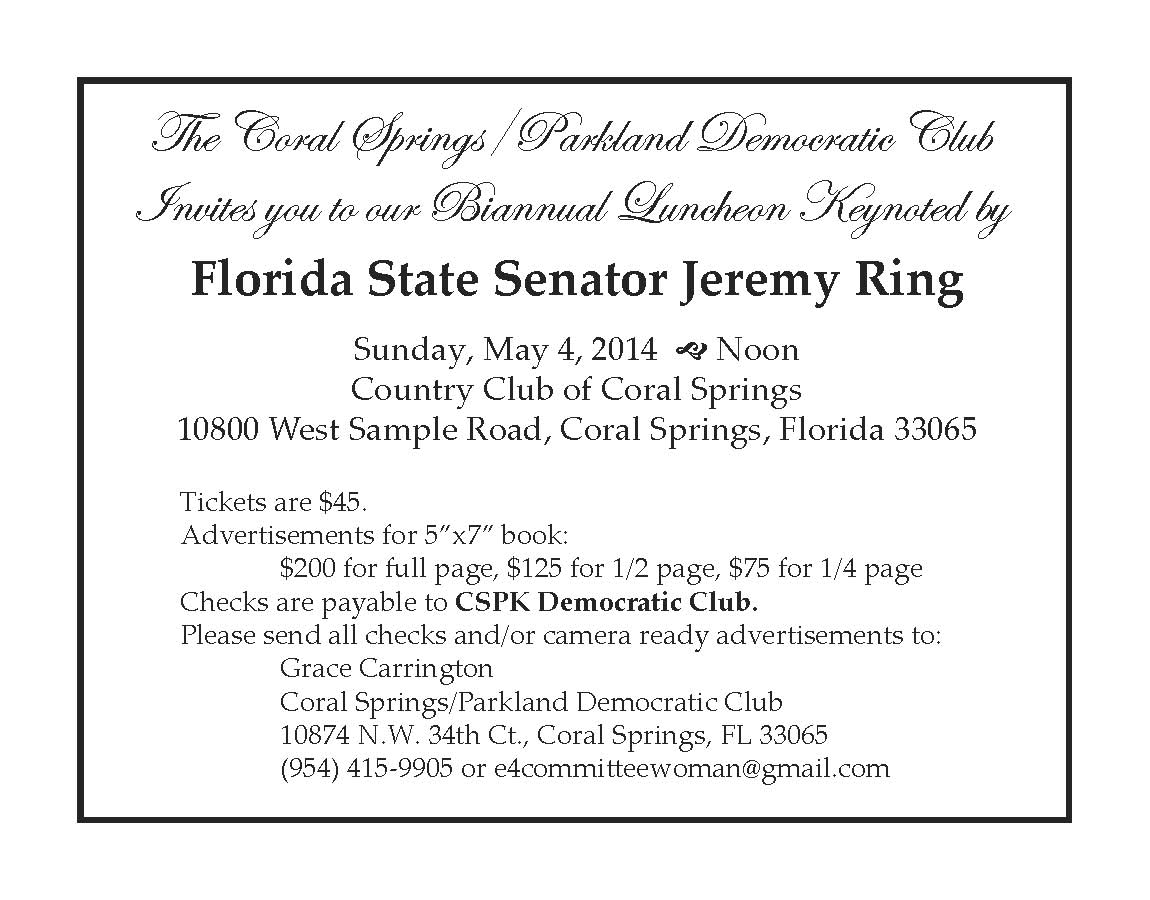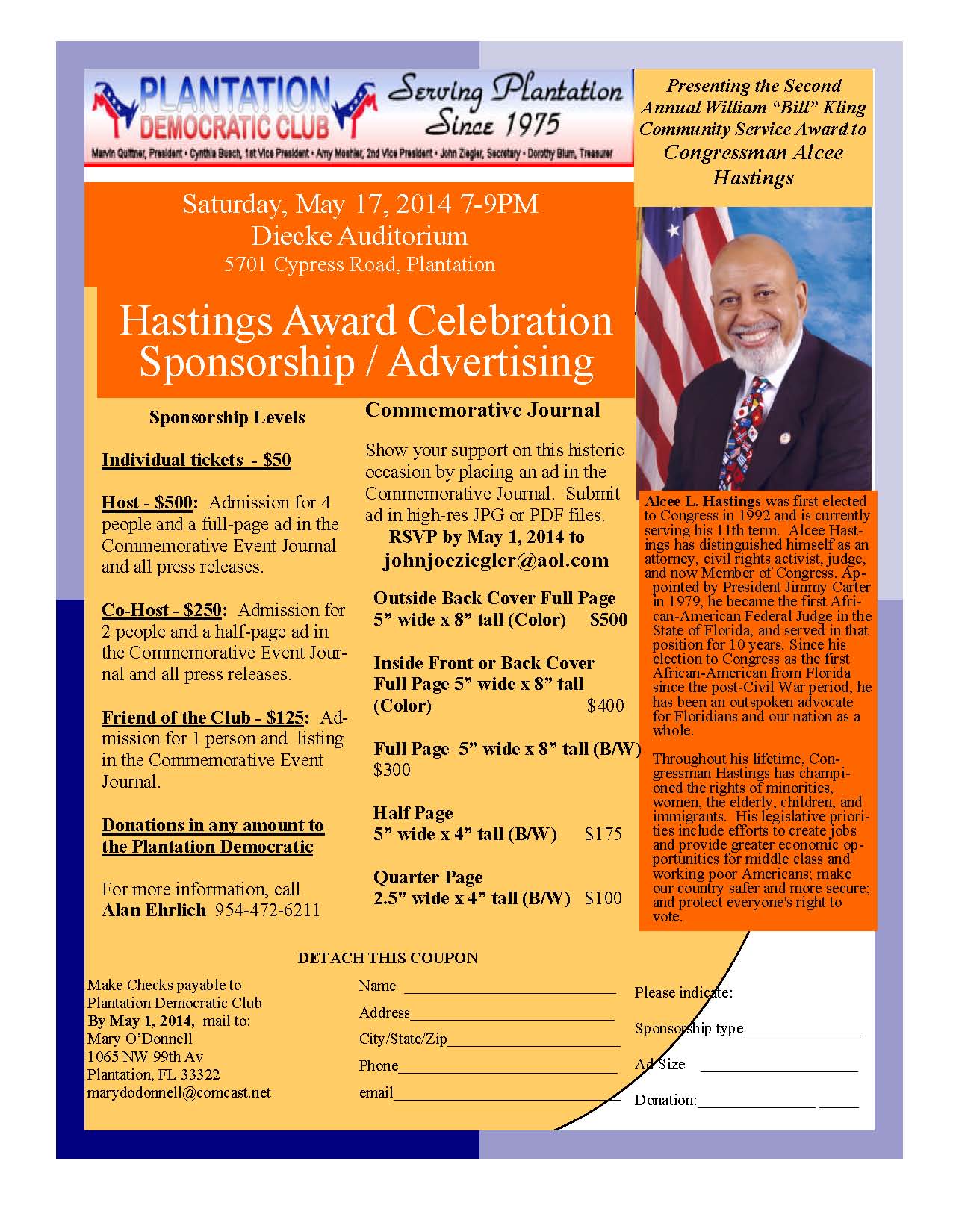Archive for year: 2014
Marc Yacht: Voters should oust the politicians who refuse to expand Medicaid
Marc Yacht, Context Florida
Because Florida Republican officials are refusing federal Medicaid dollars, about 1.3 million low-income Florida residents will not get health-care coverage.
Obamacare pays the full cost of expanding Medicaid for the first three years. After that, the federal government pays 90 percent of the cost.
A family of four could qualify for Medicaid earning up to $32,000 per year. Salaries to 400 percent of HHS federal poverty guidelines would qualify for subsidies.
Prior to Obamacare, 4.1 million Floridians lacked health insurance. Despite Gov. Rick Scott’s efforts to block Medicaid expansion and enrollment, the number of uninsured has been reduced to 3.4 million.
Despite all the opposition from state Republicans, Medicaid signups in the state have beaten projections. Through February, 440,000 people have enrolled, many with the help of volunteers, including college students, citizen groups, and health insurers.
The state’s refusal to accept federal Medicaid-expansion dollars has lethal implications for the uninsured. It is projected that 1,158 to 2,221 uninsured people will die because the state refused to provide the expanded coverage.
Florida Democratic Party Has a New Website
The Florida Democratic Party debuted its new website today.
Have a look and tell us what you think.
Editorial: If Gov. Rick Scott only had a heart
Tampa Bay Times Editorial Board
February 28, 2014 3:00pm
 This time four years ago Rick Scott was a stranger to Floridians. Then he spent $73 million on his first political campaign and rode an angry voter wave to the Governor’s Mansion. For Florida, this has been a hostile takeover by the former CEO of the nation’s largest hospital chain. In three years Scott has done more harm than any modern governor, from voting rights to privacy rights, public schools to higher education, environmental protection to health care. One more legislative session and a $100 million re-election campaign will not undo the damage.
This time four years ago Rick Scott was a stranger to Floridians. Then he spent $73 million on his first political campaign and rode an angry voter wave to the Governor’s Mansion. For Florida, this has been a hostile takeover by the former CEO of the nation’s largest hospital chain. In three years Scott has done more harm than any modern governor, from voting rights to privacy rights, public schools to higher education, environmental protection to health care. One more legislative session and a $100 million re-election campaign will not undo the damage.
This is the tin man as governor, a chief executive who shows no heartfelt connection to the state, appreciation for its values or compassion for its residents. Duke Energy is charging its electric customers billions for nuclear plants that were botched or never built. Homeowners are being pushed out of the state-run Citizens Property Insurance Corp. and into private insurers with higher premiums and no track records. Federal flood insurance rates are soaring so high that many property owners cannot afford the premiums but also cannot sell their homes. The governor sides with the electric utilities and property insurers. He criticizes the president rather than fellow Republicans in Congress for failing to fix the flood insurance fiasco they helped create.
In Scott’s Florida, it is harder for citizens to vote and for the jobless to collect unemployment. It is easier for renters to be evicted and for borrowers to be charged high interest rates on short-term loans. It is harder for patients to win claims against doctors who hurt them and for consumers to get fair treatment from car dealers who deceive them. It is easier for businesses to avoid paying taxes, building roads and repairing environmental damage.
Florida Gov. Rick Scott’s 2012 voter purge violated federal law, court rules
Steve Bousquet, Tampa Bay Times/Herald Tallahassee Bureau
Tuesday, April 1, 2014 7:48pm
TALLAHASSEE — Florida Gov. Rick Scott’s administration violated federal law by trying to remove noncitizens from the voter rolls too close to the 2012 presidential election, a federal appeals court ruled Tuesday in calling the mistake-prone effort “far from perfect.”
The decision by a three-judge panel of the 11th U.S. Circuit Court of Appeals in Atlanta invalidated efforts by the Department of State to identify and remove noncitizens from the voter rolls in advance of an election in which a Florida victory was crucial to President Barack Obama’s re-election.
Federal law prohibits states from “systematic” removals of voters less than 90 days before a federal primary or general election.
Judges said they ruled in a case that might otherwise be moot to prevent Scott’s administration from undertaking a future purge effort.
“This is a big win for Florida voters and a significant victory for good election administration practices,” said Deirdre Macnab, president of the League of Women Voters of Florida, which joined the case on the plaintiffs’ side. “Systematic computer purges are often wrong so they shouldn’t come just before an election, when the voter can’t get it corrected. … This is a precedent-setting case that upholds a key protection for voters.”
Supreme Court Strikes Down Aggregate Limits on Federal Campaign Contributions
New York Times
By ADAM LIPTAK
WASHINGTON — The Supreme Court on Wednesday issued a major campaign finance decision, striking down some limits on federal campaign contributions for the first time. The ruling, issued near the start of a campaign season, will change and most likely increase the already large role money plays in American politics.
The decision, by a 5-to-4 vote along ideological lines, with the Court’s more conservative justices in the majority, was a sequel of sorts to Citizens United, the 2010 decision that struck down limits on independent campaign spending by corporations and unions. But that ruling did nothing to affect the other main form of campaign finance regulation: caps on direct contributions to candidates and political parties.
Wednesday’s decision in McCutcheon v. Federal Election Commission, No. 12-536, addressed that second kind of regulation.
It did not affect familiar base limits on contributions from individuals to candidates, currently $2,600 per candidate in primary and general elections. But it said that overall limits of $48,600 by individuals every two years for contributions to all federal candidates violated the First Amendment, as did separate aggregate limits on contributions to political party committees, currently $74,600.


